Have you ever seen the blue “M” stickers on the nutrition cards in the dining halls? Most students don’t even know that they exist, but once you start noticing them you’ll realize that they are everywhere.
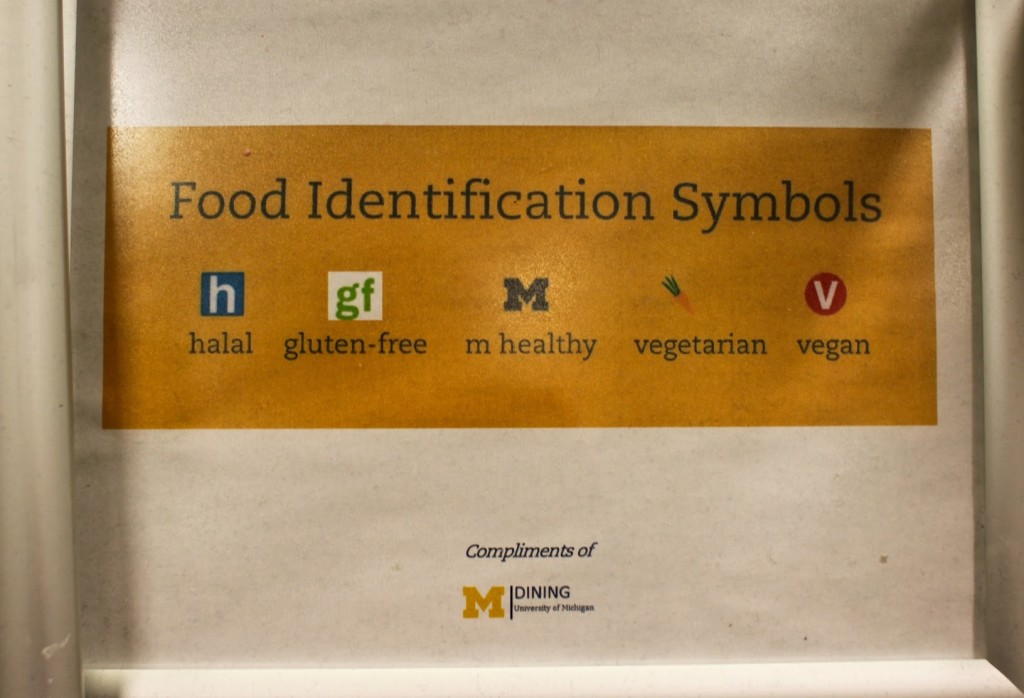
Photo by Annie Slabotsky
Here’s the deal: the Michigan dining system uses symbols in all of the dining halls to indicate different things about the dishes. The symbols vary in meaning from vegetarian to kosher to gluten free, but what interested me the most was the little blue “M”.
What Does the “MHealthy” Symbol Mean?
So, what do these little blue logos mean? My first guess was that they indicated some sort of signature Michigan dish (go blue?), but after exploring the Michigan dining website, I saw that the symbols were meant to signify “healthy options”.
I began to wonder, what is the criteria that makes something “MHealthy”? Turns out the MHealthy options are based off of nutrition guidelines created by registered dietitians at the University of Michigan. Sounds pretty legit.The guidelines overall recommend avoiding empty calories and oversized portions, eating more fruits and vegetables, avoiding foods that are high in sodium or added sugar, and choosing low-fat or fat-free dairy options.
Sounds good right? I thought so too…until I saw the bright blue emblems on the nutrition cards for the soft serve ice cream in Mojo. As much as I wanted to believe that soft serve was a healthy option, I knew that was just my stomach dreaming.
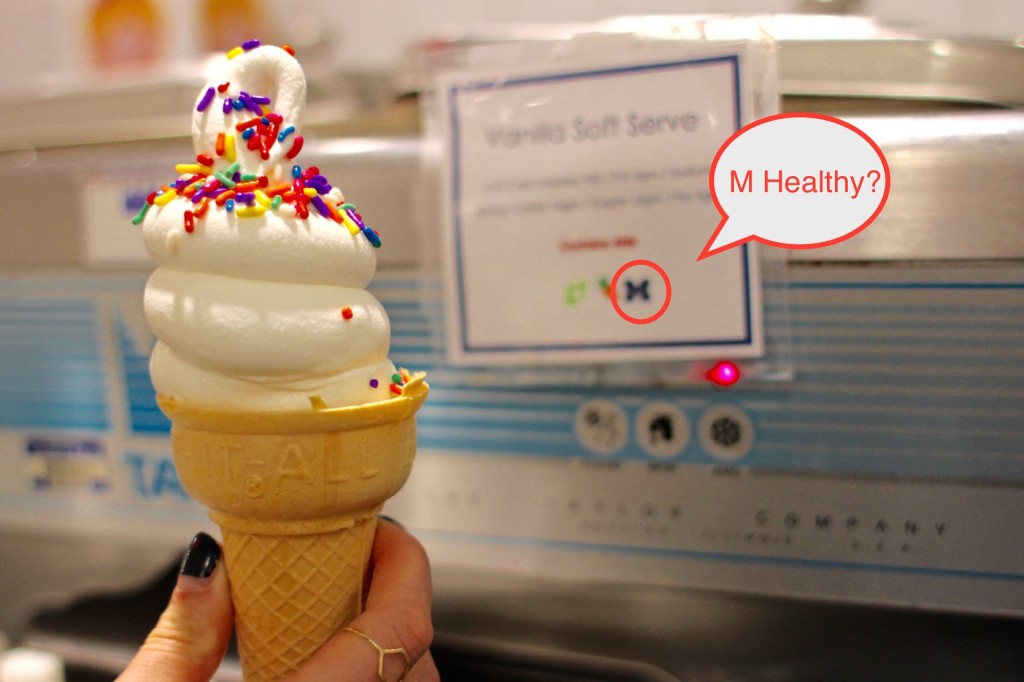
Photo by Annie Slabotsky
From that moment on I vowed to get to the bottom of these “MHealthy” logos. Was the food actually healthy? What was the “MHealthy” system truly based off of? And the most important question: how is soft serve considered healthy?
Step 1: Investigate other MHealthy foods
The first step of my investigation was to look at foods Michigan Dining considered to be “healthy” that just didn’t seem to make much sense.

Photo by Annie Slabotsy
First up was the Mojo pizzeria. At first glance the menu had great news- a blue M next to the margherita pizza. Pizza is healthy! Did this mean that I could indulge in a gooey slice of margherita pizza and say that I was eating nutritiously? Finally, I could listen to the article that told me pizza should be my best friend. But not so fast. The margherita pizza didn’t look any different than the cheese pizza, and the cheese pie wasn’t considered “MHealthy”. Weird.
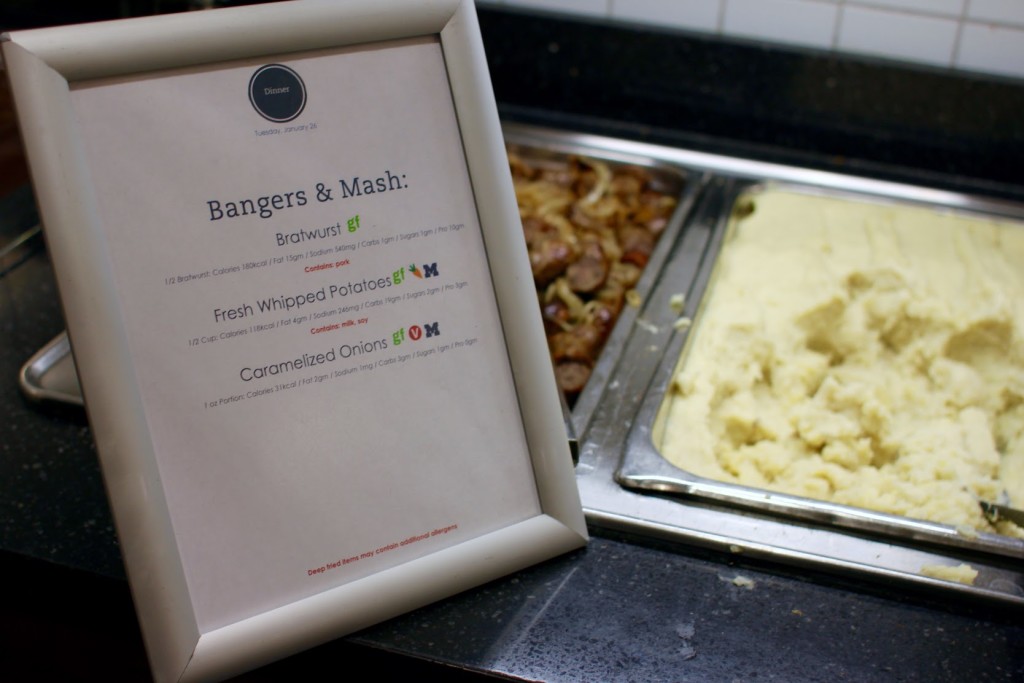
Photo by Annie Slabotsky
Next up was “Bangers and Mash.” I was confused by the use of the word banger because I typically associate it with Miley Cyrus, but FYI bangers and mash is a classic British dish made up of sausage and mashed potatoes. What confused me even more was that the fresh whipped mashed potatoes were “MHealthy”. I thought it’s pretty common knowledge that sweet potatoes are healthier than white potatoes, and mashed potatoes are known to be laden with tons of butter and milk.
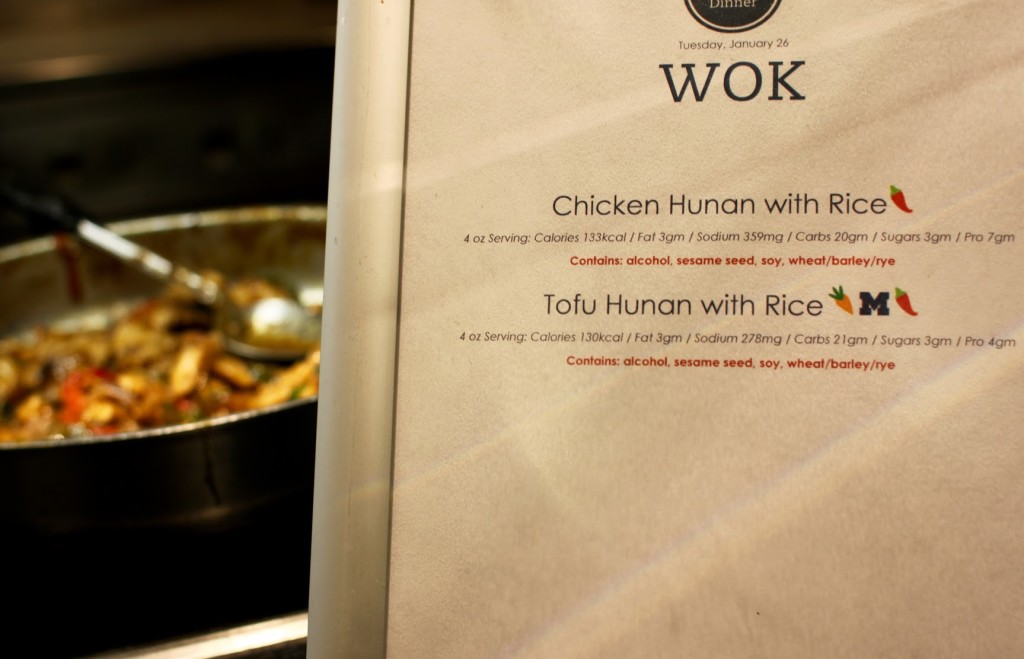
Photo by Annie Slabotsky
I saw the same thing with rice at the wok station. White rice was considered “MHealthy,” but I had always been taught that brown rice was better than white rice. Also, what made the tofu “MHealthy” when the chicken wasn’t?
Step 2: Figure out what makes an item “MHealthy”
After reading through the nutrition guidelines, I saw that the MHealthy system is mostly based off of three things: fat, sodium, and calories.
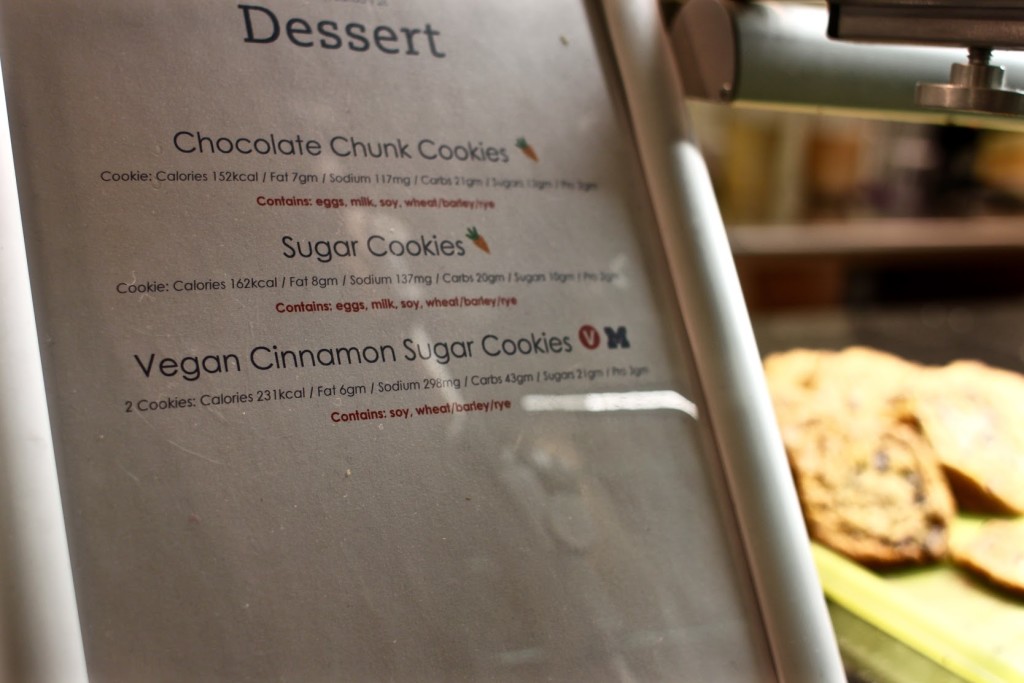
Photo by Annie Slabotsky
I noticed that the guidelines barely mentioned sugar, a key health culprit. Now it made sense why the vegan sugar cookies were considered “MHealthy” even though they had more sugar than the regular sugar cookies.
Paying attention to nutrition facts is important, but to be healthy it’s important to eat real food that’s measured by its ingredients too. Many healthier foods are in fact higher in calories and fats, such as avocado (all hail) and almond butter. Simply going by nutrition facts is the reason that soft serve ice cream and margherita pizza can be considered healthy options in the dining hall when sadly that’s not really the case.
Step 3: Figure out what to do now
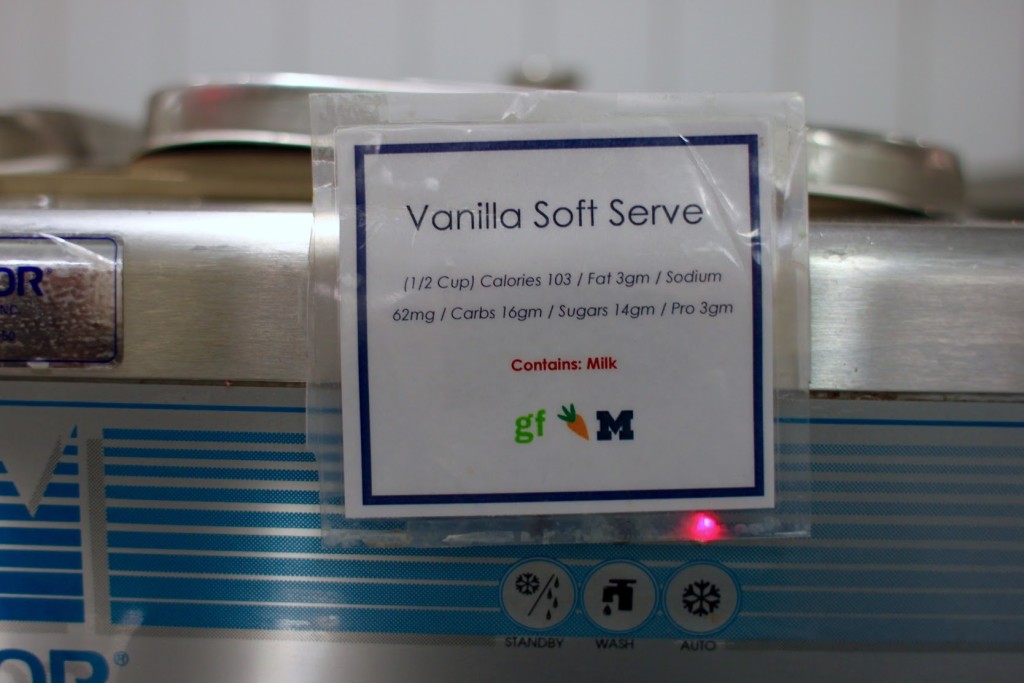
Photo by Annie Slabotsky
Looking into the “MHealthy” system revealed the sad truth that soft serve ice-cream isn’t really healthy. Although the soft serve meets the 4 grams of saturated fats and 300 calories maximums, it’s still filled with sugar. Does that mean we should never eat ice cream (or pizza, white rice, mashed potatoes, etc.) in the dining hall? Absolutely not. The truth is a little ice cream can make everyone’s life better. And that’s a fact.
But does that mean we can justify eating soft serve for breakfast, lunch, and dinner because it is “MHealthy”? Also, absolutely not. It’s important to eat everything in moderation, especially if you don’t want to gain the freshman 15. As for the “MHealthy” stickers, be sure to take them with a grain of (added) salt.


